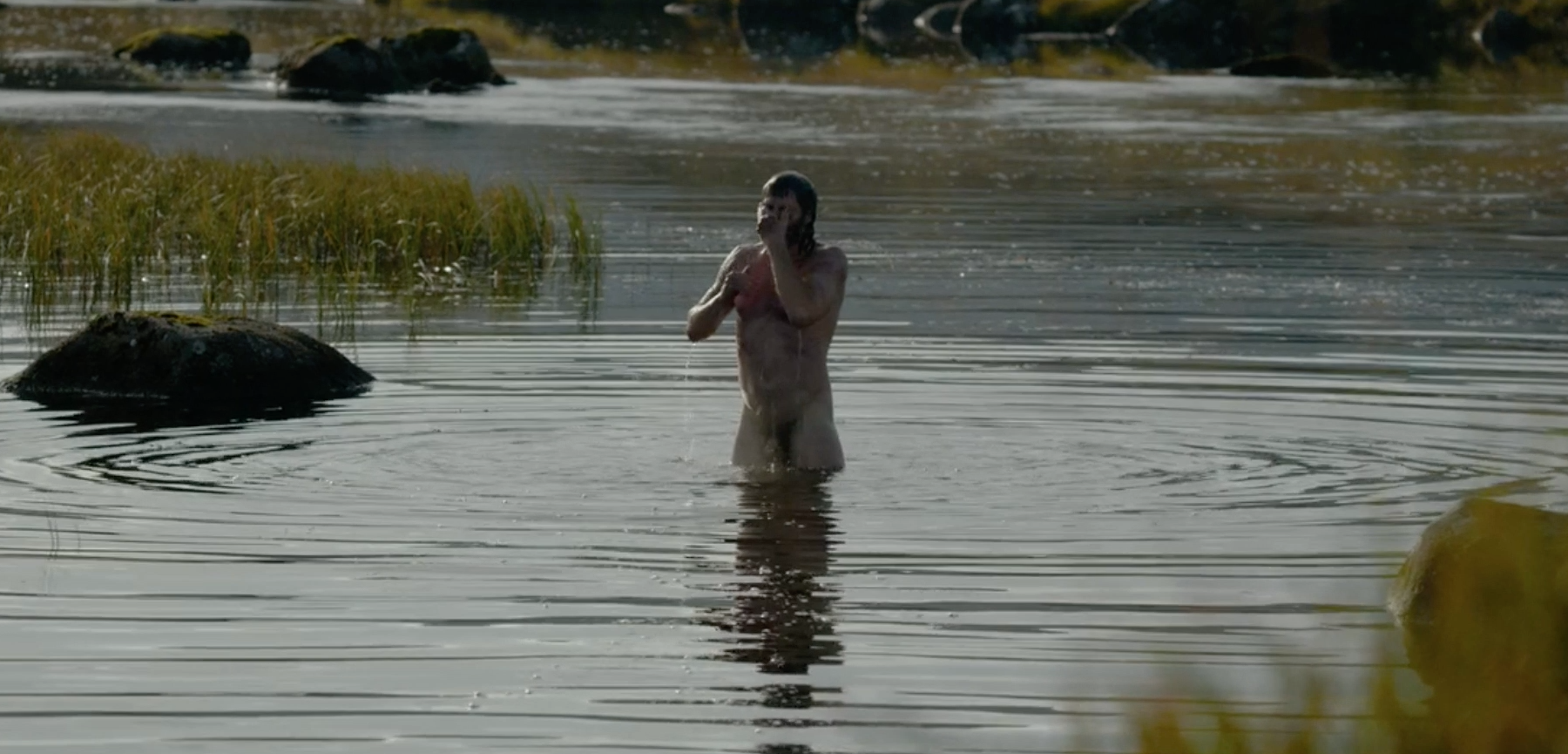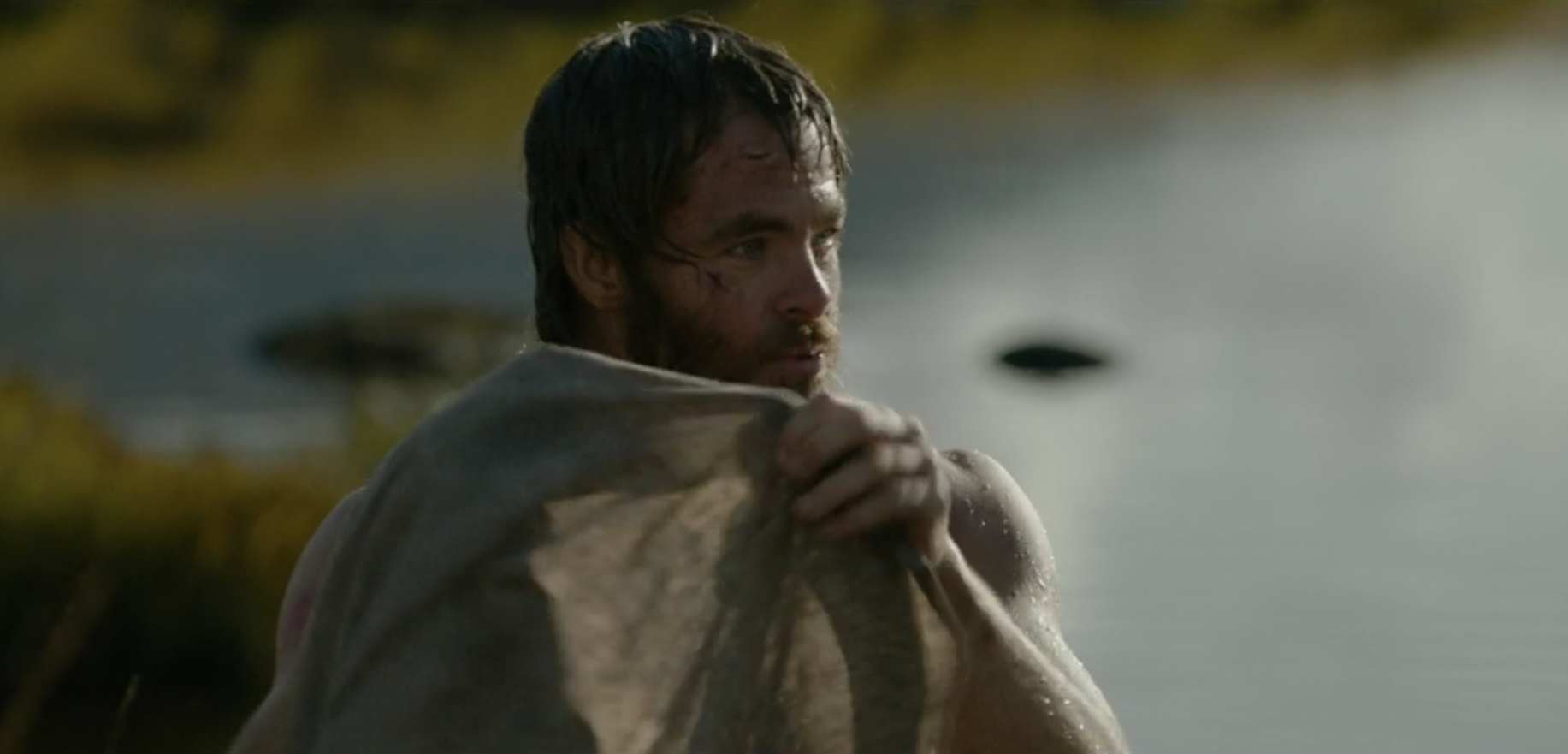Guest article from Anna from Defiant Success
Following its premiere at the Toronto International Film Festival this past September, film critics who had seen David Mackenzie’s Outlaw King were all abuzz on Twitter. The one scene they were very vocal about: star Chris Pine going full frontal. Following the social media explosion, Pine expressed his discomfort not at filming the scene but rather at how it was receiving more attention than the rest of the movie. (“There’s so much beheading in this. And yet people wanna talk about my penis.”) Subsequent interviews had Pine talking about how there’s a double standard in Hollywood towards performers going full frontal for their work; men receive a lot of press for whipping it out but when women bare it all for the camera, it’s barely noteworthy. In all honestly, Pine isn’t wrong in the slightest.
Mind you, there have been male frontal nudity scenes for decades -- at least for as long as the MPAA rating system has been in existence...
There’s the wrestling match between Oliver Reed and Alan Bates in Women in Love; Graham Chapman’s “coronation” as the messiah in Monty Python’s Life of Brian; Richard Gere’s impromptu moment in American Gigolo; Julian Sands, Rupert Graves and Simon Callow skinny dipping in A Room with a View; the reveal in The Crying Game… men going au natural for movies isn’t new. It’s just that these movies were released before cell phones and social media were commonplace so word didn't spread immediately.
 the 3 second wide shot that got all the attention
the 3 second wide shot that got all the attention
Some performers don’t seem to mind regularly stripping down for a role (i.e., Kate Winslet, Viggo Mortensen, Ewan McGregor) but that’s not to say every actor is willing to do so. Some might refuse out of fear of what future prospects will hold for them, others won’t do nude scenes because of personal reasons (i.e., their faith, family members). And depending on the actor and project, the situation gets more complicated as more people become aware of it.
Michael Fassbender got a lot of attention for baring it all in Shame but co-star Carey Mulligan did the same thing in the very same film and no one batted an eye. On the inverse, Sarah Jessica Parker received a lot of flack for having a no-nudity clause in her contract on Sex and the City, something co-stars Kim Cattrall, Kristin Davis and Cynthia Nixon clearly didn’t have the need for in theirs. (Unsurprisingly, this clause was deployed as an in-joke for Parker’s actress character in State and Main.) Why is it men get more coverage for their lack of it but women are deemed prudes for standing their ground on the matter? Could you imagine the media firestorm if it were the reverse?
Men very seldom get naked for the camera and if they do, it’s just a shot of their backside. (Looking at you, Game of Thrones.) The rare instances where they do go full frontal tend to be of the blink-and-you’ll-miss-it variety (i.e., Tom Cruise in All the Right Moves, Jude Law in The Talented Mr. Ripley, Ben Affleck in Gone Girl, and now a blink and you'll miss it from Chris Pine). Of course, with Hollywood being an industry dominated by straight men, it’s obvious why women are regularly disrobing while men aren’t. (Film industries from other countries aren’t as squeamish with nudity, male or female.) That being said, there are scenes in some female-directed films where men are in more of a state of undress than women (i.e., Harvey Keitel in The Piano, Mark Ruffalo in In the Cut). Baby steps, yes, but it’s a start.
Personally, I think the main reason most men don’t get naked is because generally speaking, many actors – regardless of gender – are insecure people. During the Drama Actress Roundtable several months ago, Thandie Newton talked about how she and Westworld co-star Evan Rachel Wood “have grown accustomed to [being naked]” whereas Simon Quarterman “was terrified” at the prospect. Newton brought up how “men are also really worried about how their bodies look. So much more worried than us.” Is that the reason? Are female actors just accustomed to it whereas men don’t know how to handle the eyes on the set staring at them?
It’s high time for men to start speaking up about this. Much like with the #MeToo movement, they should acknowledge when something doesn’t feel right. They should be more vocal about what their female co-stars regularly endure on the set. Simply put, they should – like Pine has been doing – use their male privilege to shine a light on the problem within the industry. And a good starting point is to call out how the press handles the matters of nudity in media, be it male or female.
